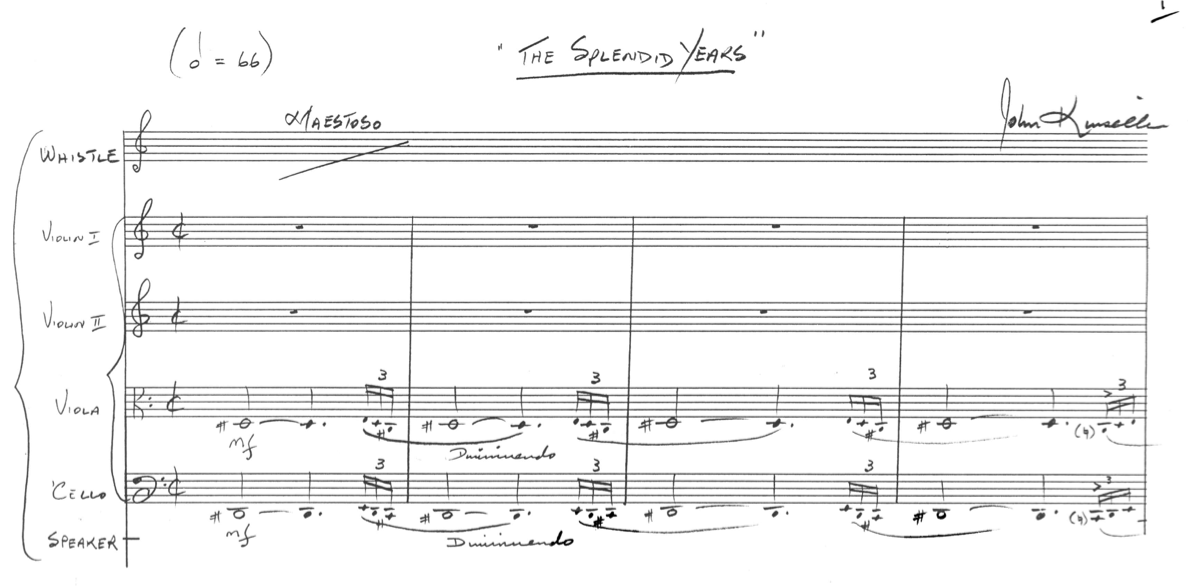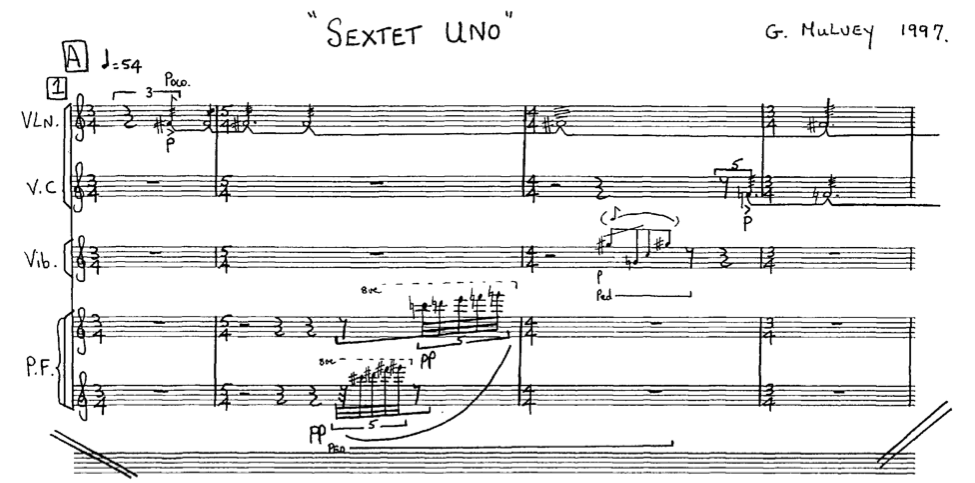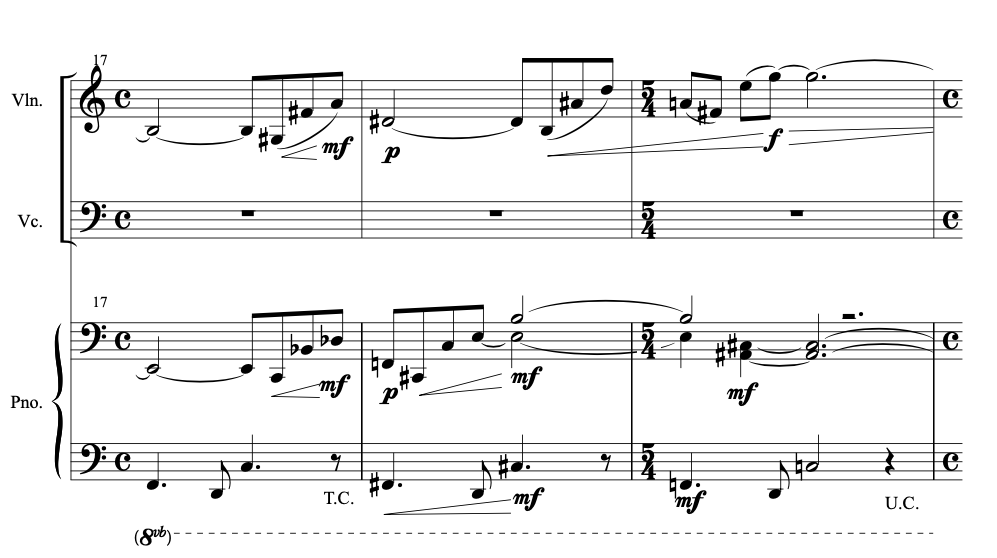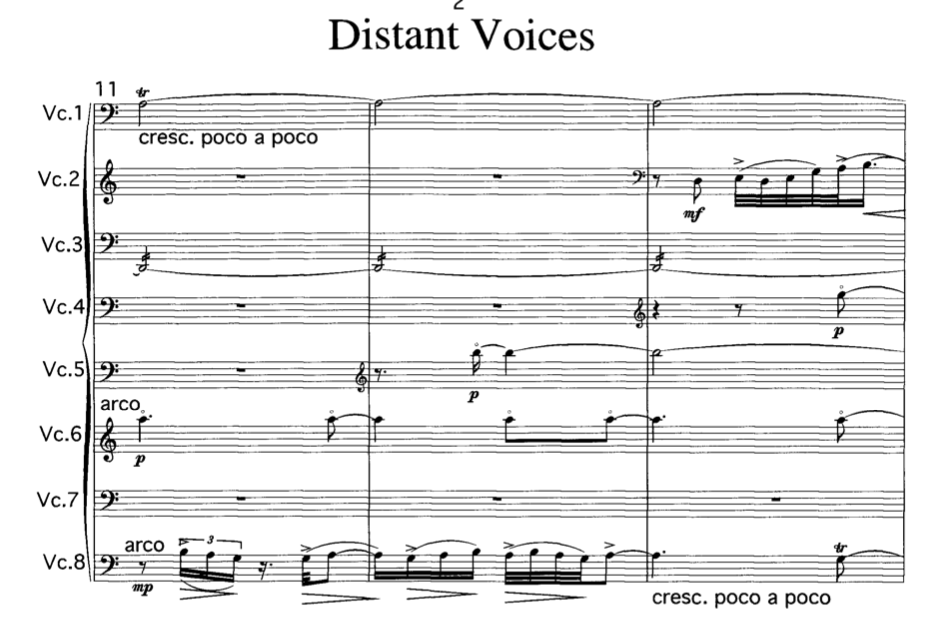Through the Digital Door: Library Ireland Week 2020
This year’s theme for Library Ireland Week is Libraries Endure: Continuity in a Crisis. CMC Library & Archive has aimed to continue to provide our core services in these uncertain times, though our physical library has remained closed for much of this year.
Contemporary Music Centre was pleased to be awarded a Heritage Council/An Chomhairle Oidhreachta Community Heritage grant in October 2020. This Community Heritage grant has enabled the digitisation of almost 400 cassettes in CMC's archive, which contain unique recordings of music by contemporary composers from Ireland, and adds to our already large digital audio archive.
This week’s Through the Digital Door highlights a small number of these newly-digitised recordings, as part of the Library’s aim of providing a continuous service throughout the Covid-19 pandemic restrictions.
John Kinsella: The Splendid Years (1990) 9'
This work was written in 1990 for speaker, tin whistle and string quartet, and features a setting of the Pádraig Pearse poem The Fool. This work was commissioned by Gerard Keenan to commemorate the 75th anniversary of the 1916 Rising. It received its premiere in the Harcourt Hotel in Dublin in January 1991.
The recording featured below was recorded at a Time for Peace - Time To Go concert at Royal Hospital Kilmainham in July 1994, and features Cormac Breatnach (traditional whistle), Louis Roden (violin), Breige McGoldrick (violin), John Kelly (viola), John O'Kane (cello), Conor Mullen (speaker).
Rhona Clarke: Inside Out (1995) 8'
This work for three guitars was commissioned by Music Network for the New Amsterdam Guitar Trio, and was premiered in January 1996 at the Garage Theatre in Monaghan. The work is in two movements and is described by the composer as being "exuberant in character."
This recording was made at The Coach House, Dublin Castle in January 1996 on the work's premiere tour with the New Amsterdam Trio. The recording includes an introduction by the composer, who discusses the process of composing the work, alongside illustrated examples by the guitar trio.
This piece is called Inside Out, and the title was given after the piece was composed [...] I tend to feel it [the title] has to have some attachment to the piece, all the same. It was called that title because some of the ideas that come into the second movement are really reflections of ideas in the first movement. I wanted something direct, rhythmic and with a pulse."
Eric Sweeney: Musique pour mes Amis (1988) 12'
Musique pour mes Amis is a work for wind quintet (flute, oboe, clarinet, bassoon and horn) which was commissioned by the GPA Festival in Great Irish Houses. This archival recording was made at a 1997 performance of this work by the Danish Wind Quintet in St. Patrick's Hall in Dublin Castle. The work is introduced by the composer, who gives some detail about the compositional process:
Sometimes I think it might be interesting to know what's going on in a composer's mind when he's writing a piece. And when I wrote this, I had some very basic thoughts in mind about what makes an ensemble. You're writing for five individuals who, yet, have to produce a very unified performance at the end of the day. Five people who if they go into a restaurant might order five different menus... might have five different views on politics or art. And yet when they come together they have to get a very unified and agreed approach to music. I was thinking, what would happen in an ensemble if you had someone who wouldn't agree with the others, who wanted to play louder, or faster? What I've tried to do in this piece is to allow, at certain points, the possibility for each individual to express his own ideas.
Gráinne Mulvey: Sextet Uno (1997) 14'
Sextet Uno is a work for chamber ensemble, commissioned by Concorde Ensemble in 1997 with funds provided by the Arts Council/An Chomhairle Ealaíon. The programme note gives some background to the origins of the work:
Sextet Uno was inspired by a David Attenborough documentary on eels. The composer says she was fascinated by the long cyclic journey undertaken by the eels from the Sargasso Sea to the rivers and ponds of continental Europe and their return to the Sargasso where their life ends. The structure of the piece elusively correlates to these journeys, comprising seven sections in one continuous movement.
This recording is of the premiere, recorded in the John Field Room in the National Concert Hall, Dublin in February 1998, with Madeleine Staunton (flutes), Paul Roe (clarinets), Richard O'Donnell (percussion), Jane O'Leary (piano), Alan Smale (violin) and David James (cello).
Donnacha Dennehy: Pluck, Stroke and Hammer (1997) 6'
This work, for piano quintet, was commissioned by Music Network and premiered by RTÉ Vanbrugh Quartet and Hugh Tinney (piano) in November 1997, in St Patrick's Hall in Dublin Castle. This work is published by Schirmer. The composer's programme note explains more about this work:
With this short piece I was concerned with the interaction between gestures and processes. The gestures are given in the title. They are interpreted in different ways ranging from the very obvious to the metaphorical. I wanted to create a contradictory object and I like to think that this is simultaneously the most violent, tender, and yet abstract piece that I have composed to date. Structurally, I wished to keep the separate processes clear; the complexity arises from the way they relate to each other. For me, one of the most interesting demands of composition is how to create an ending which both clarifies issues raised in the piece and yet attempts in some way to turn it on its head.
Raymond Deane: Marche Oublieé (1996 rev. 2004) 10'
Written for piano trio, this work was commissioned by Music Network for the Schubert Ensemble with funds provided by the Arts Council / An Chomhairle Ealaíon. This work is the third in Raymond Deane's "Macabre Triptych", which is preceded by Seachanges (with Danse Macabre) and Catacombs.
The programme note gives more detail on the title of the work:
The title of this piece derives from Liszt's Valses Oubliées for piano, a connection partly suggested by the lugubrious 'late Liszt' quality of the opening three-note figure. Marche Oubliée begins as a kind of Funeral March that is deliberately pulled out of rhythmic joint, as if the marchers were the dead themselves and not their mourners. - I had just read Kadare's novel The General of the Dead Army, which may have influenced this atmosphere.
This recording was made in February 1997 in Skerries Community Centre, Co. Dublin as part of the premiere tour.
Jane O'Leary Distant Voices (1998) 8'
Distant Voices was written in 1998 for eight cellos, and was commissioned by Donne in Musica with funds from the Arts Council/An Chomhairle Ealaíon. It was premiered in September 1998 at the Donne in Musica festival in Italy by L'Octuor de Violoncelles de la Cité de Paris. The composer's programme note explains the work and choice of instrumentation:
Its musical material is derived from a traditional Irish melody, introduced to me by a cellist but now fragmented and transformed from its original state. The cello has always been a favourite instrument, both for its richness of timbre and for its singing ability. The opportunity to write for eight cellos offers the joy of weaving together multiple strands of sound in continuously varying textures. I often play with the movement of sound within the configuration of eight identical instruments.
This archival recording is a live recording of the premiere in Fiuggi, Italy, recorded in September 1998.





